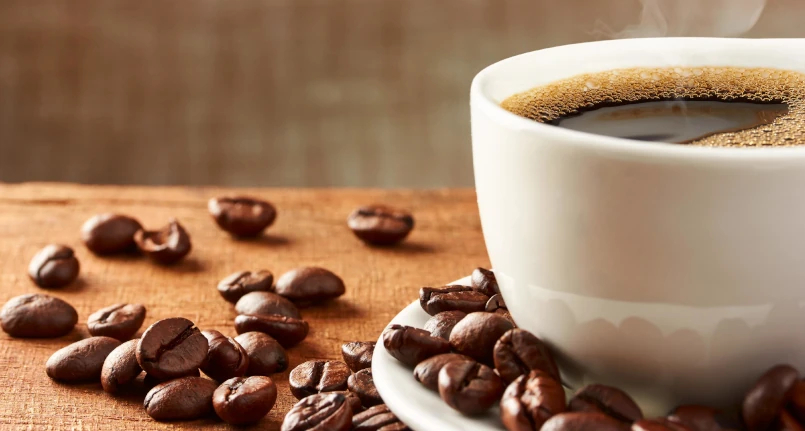Digestion and Modern Eating Habits
Digestion is an essential process for the life of man and many other living organisms. Feeding is not just an instinct, but a pleasure, an indispensable ritual aimed at socialization and the very survival of the species.
If on the one hand all this has allowed for a greater availability of food, on the other it has decidedly limited the variety of foods present in the diet. From then until today, cereals have in fact formed the essential basis of human nutrition .
Over the centuries, as social and economic conditions improved, additional foods became associated with these crops . Let us think, for example, of the introduction of corn and potatoes in the period following the discovery of America. Despite the evolution of agricultural knowledge, however, it is necessary to wait for the industrial revolution to be able to appreciate the first significant changes in the food sector.
Starting from the first post-war period, the economic wave that swept through the most industrialized countries suddenly increased the availability of food. Over the course of a few years, the food industry has literally revolutionized the dietary habits of millions of people. In addition to the innumerable benefits deriving from this food boom, however, the foundations have been laid for many of the digestive problems that afflict millions of people all over the world every day.
Overeating and unhealthy eating habits are among the main factors behind digestive problems.
Digestive difficulties , grouped under the generic term dyspepsia (from the Greek ” dys-pepsia “, i.e. ” bad digestion “), are responsible for symptoms such as inappetence, heaviness in the stomach , tiredness , drowsiness, belching , halitosis , flatulence .
What is Dyspepsia?
The term dyspepsia refers to a condition summarily described by the patient as “indigestion”.
It is estimated that around 30-40% of Italians suffer from digestive disorders. The strong increase and widespread diffusion of this problem in industrialized countries demonstrates how dyspepsia is a disorder linked to lifestyle and dietary habits typical of the Western world.
Symptoms
Typical symptoms of dyspepsia are located in the upper abdomen and can include:
- heartburn ;
- Acid regurgitation ;
- Belching;
- Halitosis;
- Pain in the upper abdomen;
- Sense of long and laborious digestion;
- Intolerance to fats, fried foods , meat and eggs .
Causes
Causes of dyspepsia can be:
- Use of medicines ( non-steroidal anti-inflammatory drugs or NSAIDs such as acetylsalicylic acid , iron , theophylline , etc.);
- Helicobacter pylori ;
- Gastric (stomach) ulcer ;
- Gastritis ( inflammation of the lining of the stomach );
- Poor nutrition (diet);
- Obesity;
- Gastroesophageal reflux disease .
To these symptoms are added other less common ones such as headache , cough , difficulty swallowing ( dysphagia ) and sometimes food vomiting . In order of importance among the causal factors of dyspepsia, Helicobacter pylori is first, followed by NSAIDs and by smoking and alcohol abuse .
Treatment
- Carry out a specialized medical examination that allows obtaining a precise diagnosis (eg gastroscopy , opaque meal, blood tests , etc.);
- Treat any organic diseases such as ulcers , stones of the gallbladder and biliary tract , celiac disease , etc.
- Eliminate or at least reduce risk factors such as NSAID intake, obesity, smoking, alcohol, physical inactivity and being overweight .
If all these problems are removed, digestive difficulties remain, we speak of functional dyspepsia, or a form of disease not linked to organic causes (dyspeptic disorders of a benign nature). In any case, there are very effective pharmacological treatments specific to the symptoms experienced.
Overeating and Dyspepsia
If food allergies or intolerances are excluded , our body is perfectly capable of digesting any food deemed edible.
Digestion is however a complex process, which requires a lot of energy from the body (about 15% of the daily caloric requirement ). For this reason, the restriction of calories is essential to ensure good digestion of food.
The division of food into different meals has the very purpose of making digestion easier while at the same time preventing the appearance of uncontrollable hunger attacks . Condensing all the food in a single meal would instead be like concentrating a whole day’s work in a few hours, certainly the performance would be very low and the nerves would not withstand the stress .
On the contrary, taking a regenerating break every now and then would help you regain energy and concentration to better face work commitments. The same result can be obtained by consuming 3 main meals ( breakfast , lunch, dinner) possibly accompanied by one or more snacks . In this way digestive problems disappear or at least are considerably reduced.
The maximum amount of food that can be ingested in a single meal must therefore also be calibrated on the basis of the commitments following the intake of food. For example, if you feel a strong “pit in the stomach” an hour before starting a very intense physical or mental activity, it is good to consume a quick, easily digestible and low-calorie snack.
For a person of normal weight of 75 kg, a meal should not generally exceed 600-800 kcal . However, a particularly active person such as a sportsman may not be able to respect this constraint even by evenly dividing the calories into the three main meals. In this case the consumption of snacks is the only solution to better redistribute the caloric intake throughout the day.
It is interesting to note that calories and not grams are used to quantify the maximum amount of food that can be consumed at each meal. It is no coincidence that, generally, it is precisely the most caloric foods that cause the greatest digestive problems.
Other articles on ‘Indigestion – Dyspepsia’
- Diet and Indigestion dyspepsia
- Bad digestion and behavioral habits
- Dyspepsia – Drugs to Treat Indigestion
- Indigestion: Natural Remedies




